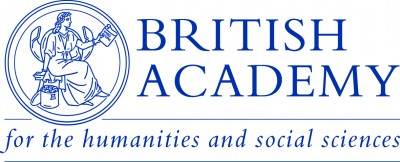Participatory Research: Working and Communicating with Communities
Reflecting on ‘A Cross-Cultural Working Group on “Good Culture” and Precariousness’
Participatory research methods investigate issues through collaboration and cooperation between academics and community members. Awareness of participatory research methods is increasing, with the impact agenda fostering a need to engage more fully with the general public. However, participatory methods have been deployed unevenly within the Humanities and Social Sciences and opportunities for engagement have been insufficiently explored. As such, this programme, which is funded by the British Academy’s Rising Star Engagement Award (EN140110) seeks to:
• demonstrate relevance and create links within the British Academy’s disciplines, drawing together disparate research foci through a set of research methods
• enable scholars, particularly early in their careers, to advance and expand their own research projects and trajectories
• identify, promote and highlight excellence in participatory methods
• promote projects aimed specifically at contributing to community wellbeing, public policy and public discourse on matters of genuine political importance
• foster engagement with the public, both in research and in communication of findings in forms intelligible to lay audiences
• promote international projects by drawing upon the experiences of existing international collaborations
The programme seeks to achieve these objectives by bringing together those thinking about participatory research and those with prior experience in a series of workshop sessions. It will draw centrally on the experiences of ‘A Cross-Cultural Working Group on “Good Culture” and Precariousness’ (http://wp.lancs.ac.uk/good-culture/), which seeks to bring together non-academic community co-researchers from Ashington, in Northumberland, and Aboriginal communities, from around Brisbane, with academics from a range of backgrounds to develop guidelines for ‘good’ cultural responses to difficult and unpredictable circumstances capable of promoting well-being.
The first two day workshop, which was held at Lancaster University on 27th-28th of June 2015, focused on the relationship between personal histories and political circumstances in the work of the community co-researchers, with the second day devoted to discussion of participatory methods. A schedule is available here
The second two day workshop, which was held at Blackfriars, Newcastle upon Tyne and Ashington Community Development Trust on 8th and 9th of January 2016, focused on the relationship between ‘good culture’, precariousness and stigma, with the second day devoted to the development of a guide for communities dealing with academics. A schedule is available here
Videos from the events are available here:
Workshop 1, Lancaster University, 27th and 28th June 2015
Workshop 2: Blackfriars, Newcastle upon Tyne and Ashington Community Development Trust, 8th and 9th of January 2016
Introducing EcCoWeLL by Denis Barrett
Communities and the Academy by Siobhan O’Dowd
Workshop 3: Blackfriars, Newcastle upon Tyne, 7th and 8th January 2017
The Role of Coal Mining Towns in Social Theory: Past, Present and Future by Gibson Burrell
Precarity in Housing: The Irish Case by Jo Finnerty and Cathal O’Connell
Responding to Educational Precarity by Siobhán Ó’Sullivan and Séamus Ó’Tuama
Cooperation and Adversity: Evolutionary and Cultural Perspectives by John Lazarus
Collaboration: How, When and Where? by Valdimar J. Haldorsson
Drawing together a guide for participatory research practise! by Siobhan O’Dowd and Denis Barret
Basic Income and the Precariat: From Exit Option to Exit Trap? by Jurgen De Wispelaere
